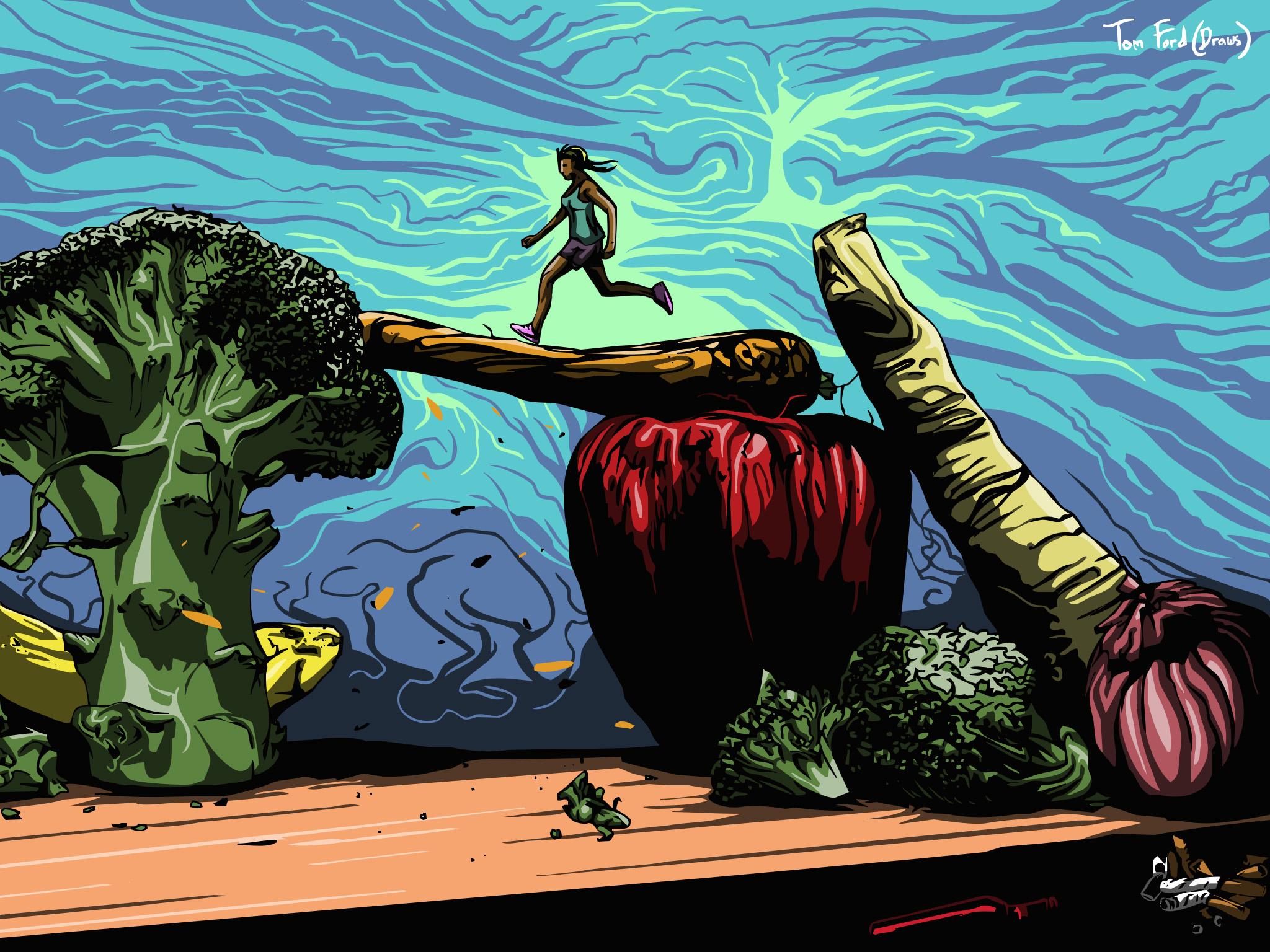How are the new year's resolutions going?
Continuing her series tackling socially unacceptable questions, Christine Manby looks at one question that we could do without hearing in the dull depths of January


Happy new year! How is 2019 treating you so far? Well, I hope. Did you make any new year’s resolutions? More to the point, are you keeping them?
“Don’t ask,” you mutter as you chuck a couple of half-price Lindt reindeers and a bottle of prosecco into the shopping basket that was meant to be full of joy-free veg. Dull, wet January is no time to be stinting on the fizz and chocolate, right? And yet, every year roughly a third of British adults do make new year’s resolutions and most of them involve physical self-improvement.
The most popular annual resolution according to decades of YouGov polls is “to lose weight”, closely followed by “exercise more” and “eat more healthily”. We also plan to drink less, quit the fags and cut out sugar. All very worthy. Imagine how lovely life could be if we managed all of that. It might even give us the energy to take up an evening class, learn a new language, write a novel, knit our own workout gear and be nicer to our in-laws.
Fat chance. The 12th day of January has officially been designated “Quitter’s Day”, since it marks the point by which most of us will have given up on our lofty new year plans. If you’re reading this on 13 January and you still haven’t sabotaged your box-fresh healthy eating regime by finishing the last of the Christmas chocs in one desperate dirty breakfast, then don’t look so smug. There’s an 85 per cent chance you’ll be back to your old ways by February too.
Why are new year’s resolutions so difficult to keep? Perhaps the answer lies in the sort of resolutions we choose to make. We rarely resolve to watch more box-sets and eat more pies. Rather, resolutions are inevitably about deprivation. Or even actual pain, as in the case of a resolution to go to the gym. Naturally, January is when gyms see a huge surge in new memberships, roughly 80 per cent of which will be dormant after five months.
“No pain, no gain,” goes the old adage but classical pilates teacher Holly Murray believes that finding a fitness regime you can stick to is a question of finding something that makes you feel good as well as virtuous. She says: “You need to find a fitness routine that releases your happy hormones.”

Like eating a pie does. Carbohydrates are great at flooding the brain with serotonin, which is why it’s so hard to resist them.
Murray eschews pies but continues: “Our reward neurochemistry will always out-wit the sabotaging mind. When a challenge is met with skill, the mind recognises it as success and is flooded with reward neurotransmitters. If the challenge is too hard, we shut down, feel anxiety and stress and get no happy chemistry.
“Likewise, if the challenge is too easy we are bored, and again no reward chemicals are released. If we keep the balance between skill and challenge right, and continue to be filled with happy hormones such as dopamine and serotonin as a result, a fitness routine can become self-sufficient. We enjoy it for its own sake and don’t keep seeking the end game.”
So, if you get no joy from the gym, look elsewhere. Dance, run outdoors, go for a bike ride. Personally, I can vouch that pilates is the perfect regime for balancing challenge and skill. There’s always something new to learn, it engages the brain as well as the body, and you can do it right without too much sweating. I hate exercise in all its evil forms but, thanks to Murray, I’ve managed to stick with pilates for almost 15 years. Sometimes, I even get enough serotonin from a session to be able to skip self-medicating with a Gregg’s sausage roll on the way home.
If avoiding Gregg’s is top of your resolution list, then Kate Harrison, author of The Dirty Diet: Ditch the Guilt, Love your Food, knows a thing or two about healthy eating and losing weight. Her advice for anyone hoping to change their eating habits for the better in 2019 is to give yourself a break and make just one small change at a time.
“January is such a tough month for so many reasons: it’s cold, we’re back in work and we’re in huge debt after Christmas. So choose a single goal at a time, the one that’ll make you feel good and bring you one step closer to whatever you want to address. Making a vat of home-made soup on a Sunday to take for lunch during the week will save money, make you feel like a domestic goddess and warm you up without too many calories. Or try going veggie on a Monday, or only drinking at the weekend. Far easier to do than the ‘all or nothing’ punishments we’re encouraged to inflict on ourselves. Guess what? They’re usually doomed to failure.”
She continues: “Successful weight loss – well, succeeding at anything worthwhile – is about small lifestyle changes that you personally can sustain and enjoy. For me, it’s intermittent fasting a couple of days a week so I can party on other days. I also tick off the days when I’ve achieved it on the calendar, like my own personal star chart! And if you fall off the wagon now and then, that’s because you’re human. Whatever you do, don’t fixate on your mistakes.”
Harrison’s last remark is perhaps the real secret to keeping a resolution. Failure doesn’t have to be final. If you’ve stopped going to the gym or you found yourself face down in the doughnuts after a particularly tough day at work, it doesn’t have to mean the end for your dream of a new and improved you. There’s no shame in starting again. You can restart the counter any time you like.

Resolutions are just as worthwhile if you begin them in March or September. Actually, September is my favourite time for making resolutions. There’s something about that “new school year” feeling that lends itself to brave attempts at self-improvement. But just about any month of the year is easier than dark, damp January when Christmas tree corpses still litter the streets.
On that subject, a last word of wisdom from my old flat-mate Dan: “If Dry January has already been a wash-out, then you could always do Dry February instead. An added bonus is that February has three fewer days. Result.”
Christine Manby has written numerous novels including ‘The Worst Case Scenario Cookery Club’
Join our commenting forum
Join thought-provoking conversations, follow other Independent readers and see their replies
Comments
Bookmark popover
Removed from bookmarks